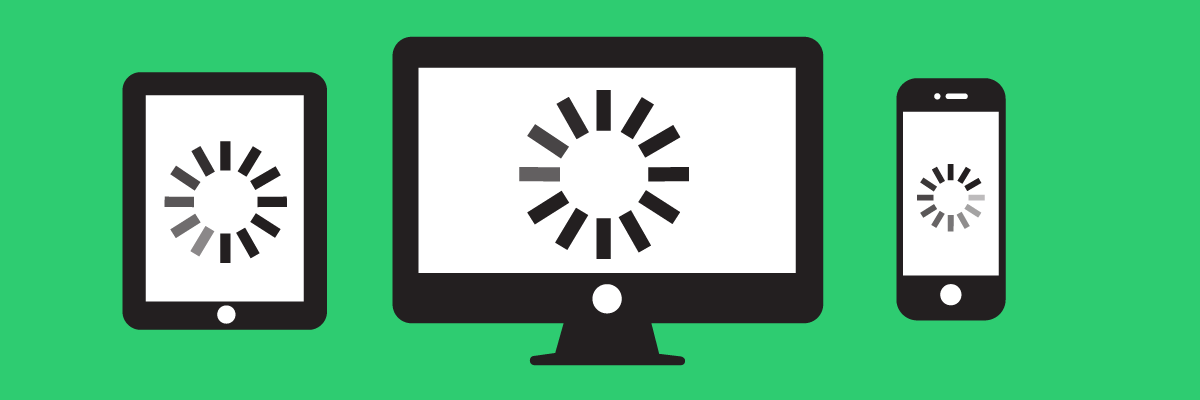Responsive Web Design is the current buzz word going around the Internet right now. Companies are either raving about it or denouncing it at every turn. There have been a lot of articles that try to point out why you should or shouldn’t use Responsive Web Design, The Flaws of Responsive Web Design, or Why Responsive Web Design is better than Mobile Application. Many of them make good points and effectively argue their case; however, over the past two years I’ve been using Responsive Web Design, I’ve come to the conclusion that the vast majority of people are looking at things the wrong way.
In an ever changing world of devices, screen sizes, resolutions, connection, bandwidth, data limits, etc, it’s difficult to accurately predict what the next big device will be, or what devices your target audience will be using. This is where Responsive Web Design becomes important, it may not currently be as fast as a native application or offer all the potential features of a native application, but that shouldn’t be its goal.

Responsive Design isn’t perfect.
Responsive Design has pitfalls that can cause problems for mobile users, mainly speed and data. There’s a huge problem with serving up images at reduced sizes depending on the current screen resolution, and while there are some clever ways to handle this (checkout Responsive Img by Brolik’s Drew Thomas), it will continue to be a problem even into the foreseeable future. With a native application, data and images can be easily served up at a reduced size improving performance, but this isn’t a good argument against not using Responsive Web Design.
Now, don’t get me wrong, I’m not trying to say performance, optimization, and data usage isn’t something you should concern yourself with as a CEO or developer, because you should. As a frequent mobile user myself, I hate slow loading web pages; if something takes more then 3-4 seconds to load (which may also be a sign you need a new website), I’ll ignore it and move on to the next site. What I am saying though, is that this should not stop you from using Responsive Web Design; just because something doesn’t solve ALL the problems doesn’t mean you shouldn’t let it solve ANY of the problems.

You’re doing it wrong!
The problem I have with many of the arguments people make against Responsive Web Design is that they try to look at it from a black and white perspective by saying “It [Responsive Web Design] is a quick-fix that doesn’t solve the inherit problem that web pages load slowly on mobile devices so you shouldn’t use it at all.” Anyone who’s arguing that a website will respond faster, more effectively, and with more interaction than a native application is kidding themselves, and anyone who thinks all of their clients want to spend time downloading their native application should think twice.
There are many sites, such as Reddit, or Hacker News that allow users to pick and choose articles they want to read from all over the web. People visiting a site aren’t always going to be loyal returning customers, so why should they need to download a native application to view an article on a site they may never return to? This is what Responsive Web Design is for. This is why you should use it even if you continue to offer a native application. Visitors to your website deserve a good experience while browsing your website, and Responsive Web Design done right can give this to them regardless of the device they are using.

The goose hasn’t laid the golden egg yet.
As we stand now, with the technologies we currently have, Responsive Web Design shouldn’t try to do a native application’s job better then a native application, but it should strive to give the millions of potential users the best possible experience across a multitude of devices.
There is no golden egg in the web development world yet. There is no best solution to handle all the available devices that currently access the Internet. As developers, we must use the tools, practices, and techniques currently available to us to provide our clients, and their customers, with the best possible experience. That may mean offering a mobile site, a desktop site, and a native application, or it may mean offering one responsive website, or even a responsive website and a native application.
The point is, there is no one solution to fix everything, so take advantage of what you must for the sake of all your customers. In this day, even with its flaws, there is no reason you include Responsive Web Design as an alternative to a mobile web page or native application. Mobile phones are becoming increasingly faster, and HTML5 is giving developers new tools to handle mobile load times making any glaring problems with Responsive Web Design much less imposing.
Looking for some more on the debate between Mobile Applications and Mobile Websites? Check out Jason Brewers series on the topic: Mobile Site vs Mobile App